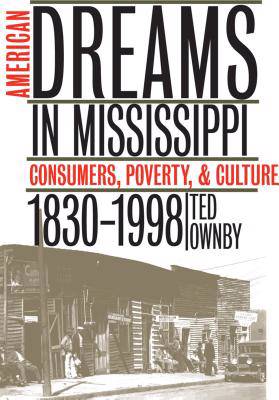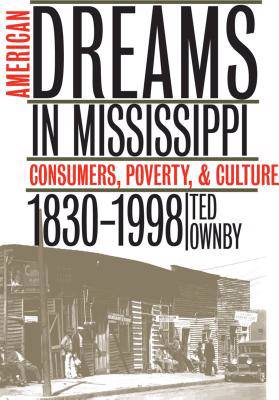
- Afhalen na 1 uur in een winkel met voorraad
- In januari gratis thuislevering in België
- Ruim aanbod met 7 miljoen producten
- Afhalen na 1 uur in een winkel met voorraad
- In januari gratis thuislevering in België
- Ruim aanbod met 7 miljoen producten
American Dreams in Mississippi
Consumers, Poverty, and Culture, 1830-1998
Ted OwnbyOmschrijving
The dreams of abundance, choice, and novelty that have fueled the growth of consumer culture in the United States would seem to have little place in the history of Mississippi -- a state long associated with poverty, inequality, and rural life. But as Ted Ownby demonstrates in this innovative study, consumer goods and shopping have played important roles in the development of class, race, and gender relations in Mississippi from the antebellum era to the present.
After examining the general and plantation stores of the nineteenth century, a period when shopping habits were stratified according to racial and class hierarchies, Ownby traces the development of new types of stores and buying patterns in the twentieth century, when women and African Americans began to wield new forms of economic power. Using sources as diverse as store ledgers, blues lyrics, and the writings of William Faulkner, Eudora Welty, Richard Wright, and Will Percy, he illuminates the changing relationships among race, rural life, and consumer goods and, in the process, offers a new way to understand the connection between power and culture in the American South.
Specificaties
Betrokkenen
- Auteur(s):
- Uitgeverij:
Inhoud
- Aantal bladzijden:
- 248
- Taal:
- Engels
Eigenschappen
- Productcode (EAN):
- 9780807848067
- Verschijningsdatum:
- 31/05/1999
- Uitvoering:
- Paperback
- Formaat:
- Trade paperback (VS)
- Afmetingen:
- 156 mm x 234 mm
- Gewicht:
- 403 g

Alleen bij Standaard Boekhandel
Beoordelingen
We publiceren alleen reviews die voldoen aan de voorwaarden voor reviews. Bekijk onze voorwaarden voor reviews.









